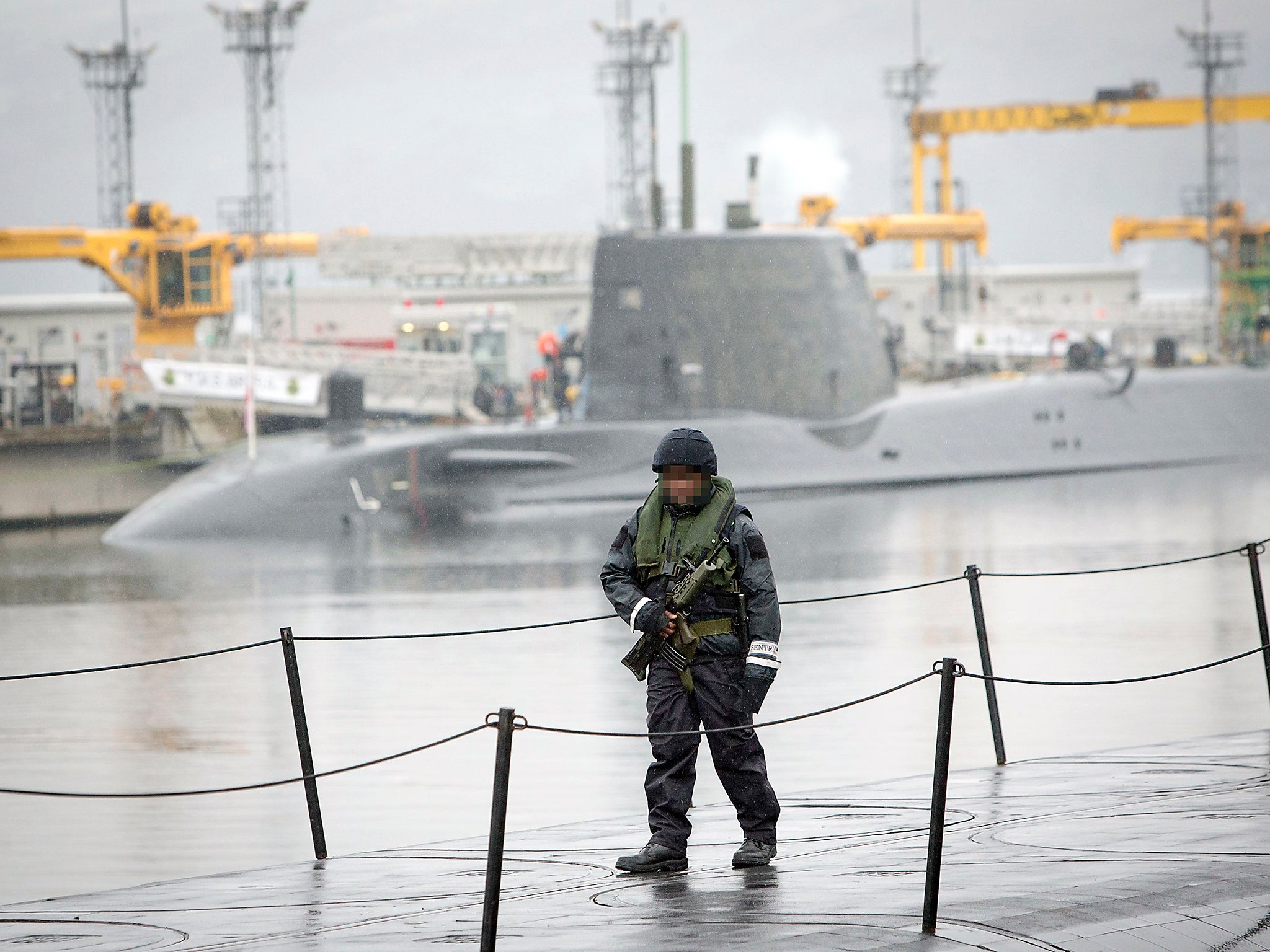The best way for our leaders to remember the dead on Armistice Day? Do everything they can to avoid a nuclear war
We are facing a situation where millions could be killed in minutes. The death toll could be even greater than that of the two world wars put together

Your support helps us to tell the story
From reproductive rights to climate change to Big Tech, The Independent is on the ground when the story is developing. Whether it's investigating the financials of Elon Musk's pro-Trump PAC or producing our latest documentary, 'The A Word', which shines a light on the American women fighting for reproductive rights, we know how important it is to parse out the facts from the messaging.
At such a critical moment in US history, we need reporters on the ground. Your donation allows us to keep sending journalists to speak to both sides of the story.
The Independent is trusted by Americans across the entire political spectrum. And unlike many other quality news outlets, we choose not to lock Americans out of our reporting and analysis with paywalls. We believe quality journalism should be available to everyone, paid for by those who can afford it.
Your support makes all the difference.This weekend marks the 100th anniversary of the end of the First World War, one of the world’s most horrific conflicts. One of the best accounts of how this tragedy began, by the historian Christopher Clark, details how a group of well-meaning European leaders – “The Sleepwalkers” – led their nations into a war with 40 million military and civilian casualties. Today, we face similar risks of mutual misunderstandings and unintended signals, compounded by the potential for the use of nuclear weapons – where millions could be killed in minutes rather than over four years of protracted trench warfare. Do we have the tools to prevent an incident turning into unimaginable catastrophe?
For those gripped with complacency, consider this scenario. It is 2019. Russia is conducting a large military exercise in its territory bordering Nato. A Nato observer aircraft accidentally approaches Russian airspace, and is shot down by a Russian surface to air missile. Alarmed, Nato begins to mobilise reinforcements. There is concern on both sides over recent nuclear deployments in the wake of the collapse of the Intermediate-range Nuclear Forces (INF) Treaty. Suddenly, both Nato and Russia issue ultimatums – each noting their respective nuclear capabilities and willingness to use them if vital interests are threatened. Europe is edging towards a conventional conflict, and the risk of escalation to nuclear use is very real.
Each of the strands in this hypothetical scenario is visible in the wind today, exacerbated by new threats – such as cyber risks to early warning and command and control systems, which can emerge at any point in a crisis and trigger misunderstandings and unintended signals that could accelerate nations towards war. This is all happening against a backdrop of unease and uncertainty in much of the Euro-Atlantic region resulting from the Ukraine crisis, Syria, migration, Brexit, new technologies, and new and untested leaders now emerging in many Euro-Atlantic states.
What can be done to stop this drift towards madness?
When leaders from across Europe meet in Paris on 11 November to mark the 100th anniversary of the conclusion of the First World War, those with nuclear weapons – presidents Donald Trump, Vladimir Putin, Emmanuel Macron and the prime minister Theresa May – should reinforce the principle that a nuclear war cannot be won and must never be fought. This principle, articulated at the height of the Cold War by the presidents of the United States and Russia, was embraced then by all European countries. It would communicate that leaders today recognise their responsibility to work together to prevent nuclear catastrophe and provide a foundation for other practical steps to reduce the risk of nuclear use – including resolving the current problems with INF and extending the New Strategic Arms Reduction Treaty (Start) until 2026.
There remains the challenge of rebuilding trust between the United States, Nato and Russia so that it will again be possible to address major security challenges in the Euro-Atlantic region. This was done throughout the Cold War and must again be done today. This process could begin with a direction by leaders to their respective governments to renew a mutually beneficial dialogue on crisis management, especially in the absence of trust.
Crisis management dialogue was an essential tool throughout the Cold War – used for managing the “day to day” of potentially dangerous military activities, not for sending political signals. Leaders should not deprive themselves of this essential tool today. Used properly, crisis management can be instrumental in avoiding a crisis ever reaching the point where military forces clash inadvertently or where the use of nuclear weapons needs to be signalled, let alone considered, by leaders with perhaps only minutes to make such a fateful choice.
In reviewing the run-up to past wars, there is one common denominator: those involved in the decision making have looked back and wondered how it could have happened, and happened so quickly? In Paris on Sunday, 100 years after the guns across Europe fell silent, leaders can begin taking important steps to ensure a new and devastating war will not happen today.
Des Browne is the UK’s former secretary of state for defence. The article was written with Wolfgang Ischinger, former German ambassador to the United States; Igor S Ivanov, former Russian foreign minister; and Sam Nunn, former US senator
Join our commenting forum
Join thought-provoking conversations, follow other Independent readers and see their replies
Comments